May was such a good reading month. After I spent last year – and the beginning of this one – dutifully slogging through my TBR fiction pile, I’ve now got the head- and shelf-space to pick up contemporary fiction, which I indulged in here (thanks to the library). There’s hope for my TBR non-fiction pile too: it’s now got only three books that I’ve had for longer than a year.
In May I read:
The Unwomanly Face of War by Svetlana Alexievich
Good Girl by Aria Aber
Ill Feelings by Alice Hattrick
The Salt Path by Raynor Winn (audiobook)
Universality by Natasha Brown
Dawn Powell at Her Best (Dance Night, Turn, Magic Wheel & short stories)
Dance Your Way Home: A Journey Through the Dancefloor by Emma Warren
The Ministry of Time by Kaliane Bradley
The Thirteen Problems by Agatha Christie
Bound: A Memoir of Making and Remaking by Maddie Ballard
The Beautiful People by Marylin Bender
The Coin by Yasmin Zaher
Bohemian Lives: Three Extraordinary Women by Amy Licence
Fraud by Anita Brookner
Dream Count by Chimamanda Ngozi Adichie
I began highlighting my favourites on my list but quickly realised that this was such a stonking reading month, it’s far easier to suggest the two that I wouldn’t bother with: The Beautiful People and Bohemian Lives. For a slightly more detail, read on…
Hot stuff
The Ministry of Time by Kaliane Bradley
An arctic explorer is brought back to life – and forward by some 180 years or so – by the British government for perhaps not altogether honourable purposes. This novel was exactly as people sold it to me: fun, charming, smart, romantic, albeit slightly falling apart at the end. I read this during a very stressful week, and it was pure, delightful distraction.
I’ve been trying to read all the Women’s Prize for Fiction shortlist this year (The Persians and Tell Me Everything to go). This is the one that most intrigued me, a coming of age set in Berlin. Nila – the only child of Afghan parents – is struggling against the idea of being a good girl, and her family’s expectations versus her own desires and shifting ambitions, with a wider background of the West reconfiguring its own identity after 9/11. Aber is fantastic at capturing the intensity of being in your early 20s, and the feeling of being lost. She’s also convincing on the clubbing, drugs and sex – of which there’s a lot. Contrary to what that subject matter might suggest, it moves at quite a languid pace, the alternative time zone of the afterhours world. It perhaps feels like there’s one night out too many (isn’t there always?), and that not all Aber’s ideas have come off – but ambition wins over playing it safe for me every time.
While I had this out from the library, it won the Dylan Thomas prize, beating the likes of Glorious Exploits and The Safekeep. It’s centred on a young, orphaned Palestinian woman in New York, who is generally failing to adapt to its dirt, capitalism and ambitions. Zaher describes her protagonist as ‘despicable’ – and the book falls into that Ottessa Moshfegh groove. Though I enjoy Moshfegh, The Coin becomes arguably more interesting, and disturbing, underpinned by the trauma of her displacement. If Good Girl perhaps contained one idea too many, this multiplies that tenfold – in an exhilarating way. I wish it’d been a book club book, as I’m still trying to work it all through. Tell me if you’ve read it!
Dream Count by Chimamanda Ngozi Adichie
Another slow pace, as dream-like as title suggests. It switches between the stories of four women – three from Nigeria, one from Guinea – reflecting and reckoning with their stories and relationships. It really is centred on the women – to the extent that I found myself rooting for at least one slightly less terrible man to enter the picture. At its most powerful when centred on a story echoing the sexual assault claims against Dominique Strauss-Kahn, the book felt like it had points to make, and didn’t make them in the subtlest way. That said, if Adichie wants to tell me a story, I’ll always want to listen.
Brown’s Assembly was a knock-out punch. This is more of a ducker and a diver, unfolding different perspectives on a single incident, essentially a take on the modern British media. No one – including the reader – escapes guilt free, although you are rewarded with some sharp and savage one-liners. I read it twice (it’s only around 150 pages) to try and make sure I’d squeezed the most I could out of it. It’s great fun – and very, very different from Assembly.
Book club extra reading
The Thirteen Problems by Agatha Christie
Christie is one of my comfort reads, so when I found Natasha Brown had mentioned The Thirteen Problems as an influence on Universality, I was intrigued to see how that might be. The Thirteen Problems is a series of short stories, set around two different dinner parties, where guests recount mysteries from their past. There’s no surprise (for the reader at least) when Miss Marple can crack the case each time, based on her observations of village life. The stories are short and satisfying, I just need Marple (or perhaps Natasha Brown) to come back and unravel its link to Universality for me.
Playing catch-up
The Salt Path by Raynor Winn (audiobook)
The film coming out was my prompt to finally read this. I’m a fan of a long walk book (hello, Wild) and felt somewhat guilty for not tackling The Salt Path, given that it takes place closer to home. It feels easy to describe such stories as ‘inspirational’ and gloss over the hardships that sit at their roots. Winn and her husband Moth walked because they had lost everything, and had more loss – in terms of Moth’s health – looming. Like a good walk, this book offers a shift in perspective. It’s a non-glossy depiction of homelessness in the UK, one that differs from the assumed urban one. You feel like you’re with them every step, every sleep and pasty, of the way – and I’m almost surprised at its popularity because it’s not a kind Britain that you encounter through their story – finishing the book sunburnt and salt crusted.
Always a pleasure
Sometimes I feel like I’m cheating my numbers by reading very, very short books. This volume goes someway to balance the books, as it includes two novels by Powell (Dance Night and Turn, Magic Wheel) as well as some short stories. Powell never quite broke through fame wise, although once you discover her, you tend to become a devotee – for example, while reading this volume, I saw Rachel Syme extolling A Time to be Born: one of my favourite New York novels. Powell’s books can be hard to get hold of, so this was a lucky charity shop find earlier this year. The novels – six years apart – reflect two aspects of Powell’s life: her childhood in Ohio in 1930’s Dance Night – where big dreams met small town claustrophobia – and her New York life (and friendships with the likes of Edmund Wilson and Ernest Hemingway) in Turn, Magic Wheel. Often considered her masterpiece – including by the likes of Syme – it’s centred on the city’s publishing industry. The book’s heart lies in Effie, the first wife of a Hemingway-style figure, while Powell fires shots at the likes of literary magazine editors, everything-is-copy hacks, the society hostesses and so on.
Fraud begins with a typical Brookner heroine: middle-aged, never married Anna Durrant, devoted carer to her mother until her recent death. There’s an unexpected twist: Anna is missing, her whereabouts unknown. Rather than going down the Christie route, however, Fraud proceeds to deftly pick apart both Anna’s psychology, and that of those in her circle. While often Brookner enjoys setting up characters in contrast to each other, here there’s three single women to compare to Anna. Though it doesn’t tread the path of a traditional thriller, she does pull off something of a twist with its ending. I was reading the Brooknerian blog, which divides her output into the “vital 80s; the settled magisterial 90s; the bleak, experimental 2000s.” This one came out in 1992 and backs-up that description.
The non-fiction TBR report
The Unwomanly Face of War by Svetlana Alexievich (time on TBR shelf: 8 years)
I was sent this on its 2017 publication by Penguin Classics and it’s stayed on my shelf all this time – when do you find yourself in the mood to read a big thick book about war? But, of all the books that I’ve hung on to for so long, this has been the most rewarding, made especially relevant as I was reading it over the VE day anniversary. Alexievich shares the testimony of some of the 800,000 women who served as part of Soviet forces in the Second World War. Through the many different women and stories, she builds up a mosaic of experience and emotion. Horror, destruction and death, but also the humanity. The details that get left in the usual regaling of ‘war’ tales.
You get a sense of individual personalities – such as the woman who slept in her earrings, as it was the only time she could wear them – but also their similarities. What’s particularly striking is their eagerness to fight, such was the complete conviction in their country and communism that many of the women lied about their age to volunteer or spent weeks begging to be sent to the front. Or their shared dreams of how they imagined life would be once the war was over. When love would triumph over conflict, and there’d be a better future for all. Devastating.
Ill Feelings by Alice Hattrick (on TBR shelf: 4 years)
This examines the idea of illness and its place in our culture, through the lens of Hattrick’s and their mother’s ME / Chronic Fatigue Syndrome. Hattrick also pulls in the likes of Virginia Woolf, Alice James and Elizabeth Barrett Browning to examine how they lived with their ill health. As an able-bodied, essentially ‘well’ person, this confronted my assumptions in the best kind of way. Rather than setting things in binary terms – well / unwell – Hattrick opens up possibilities.
Dance Your Way Home: A Journey Through the Dancefloor by Emma Warren (time on TBR shelf: 6 months)
A kind of history of dance culture in the UK at the end of the 20th century and into today, Warren considers dancing in its widest applications – going all the way from the dancing that takes place in house parties, youth clubs and teen discos to the highest level of choreography. In Britain, especially, she argues we get hung up about being ‘bad’ dancers – an inhibition that serves no purpose other than stopping us enjoying ourselves. It’s also a personal history of her own dancefloors and, as Warren mainly danced in south London, it frequently overlaps with areas that I know well, though not on the same terms. I’m fascinated by how people move through the city, how they make spaces their own – and this is another aspect of that. Thank you to Roxanne – one of my long-time dancing buddies – for giving this book to me. It came in a month where I did dance – on a proper night out and at a family wedding. I tried to live Warren’s words about abandoning the idea of “bad dancing” (and I may have drunkenly tried to tell a few people about it too), and I did feel more liberated for it.
The Beautiful People by Marylin Bender (Time on TBR shelf: 13 years)
Published in 1967, the cover states the books premise: ‘A candid examination of a cultural phenomenon - the marriage of fashion and society in the 60s.’ It’s safe to say that Bender – a writer for the New York Times – wasn’t a fan of any of this. She talks about how this causes a deterioration in the quality of clothes, and lack of style, when hype and fame become more important – basically, for the main, she could be describing today’s fashion world. There are some interesting bits, but it’s hard to stay engaged with a rant that lasts for 300 plus pages. “Only the most desperately out-of-it eager and name-hunters will stick with it all the way,” declared the New York Times in its review. There’s me told for persevering. Though a name I did hunt out was Caterine Milinaire – one of the authors of my favourite style guide, Cheap Chic – for more of which see below.
Bohemian Lives: Three Extraordinary Women by Amy Licence (Time on TBR shelf: 8 months)
Licence’s ‘three extraordinary women’ are Ida Nettleship, Sophie Brzeska and Fernande Olivier. While they individually justify that description, I’m not really sure why they appear in a book together – they’re not really linked other than by the concept of ‘bohemian’ and their relationships with male artists, through which they all suffered badly. As you’re forced to hop between the three of them. I most enjoyed reading about Ida Nettleship, wife of Augustus John, thanks to a curiosity about John’s women kindled by Margaret Forster’s book, Keeping the World Away. (I see there’s a new book coming out, all about the relationship between Augustus and Gwen.)
Bound: A Memoir of Making and Remaking by Maddie Ballard
I like, when I can, to make my own clothes. I’m not particularly good at it yet, but I’m getting better. I like doing it because it allows absorption and creativity, while being a way to skip some of the hell of the contemporary fashion system. I’ve rarely found people writing about clothes-making in a way that reflects my interest in it – there’s the ever-inspirational Charlie Porter, and, coincidentally, I also saw this post from Alice Hattrick this month, and now there’s Bound. Ballard centres different periods of her life around the garments she makes. If you sew, no doubt you’ll recognise some of the names of the patterns she uses. I loved how she outlined the choices she made with each garment, and how each item of clothing was folded into her life.
What books I bought in May
Assembly and Bound (see above) and Francesca Wade’s Gertrude Stein, all new. Babylon Albion by Dalia al-Dujaili from the proofs section at Any Amount of Books. From the always reliable St Giles bookfair, Margaret Drabble fourth book (and the fourth I’ll have read by her) Jerusalem the Golden and Elizabeth Jane Howard’s memoir, Slipstream.
It was also Offprint this month, Tate’s annual independent publishing fair. I bought a beautiful Green Man zine from Erin Jackson Raynes and You Gotta Keep Your Head Straight About Clothes, a smart, thoughtful ode to Cheap Chic (hey, Caterine Milinaire!) by Dal Chodha, complete with a mini Jerry Hall bookmark. It’s filed next to my four copies of the book itself.
What else I enjoyed in May
Dancing! Noah Davis at the Barbican. A trip to a model village.
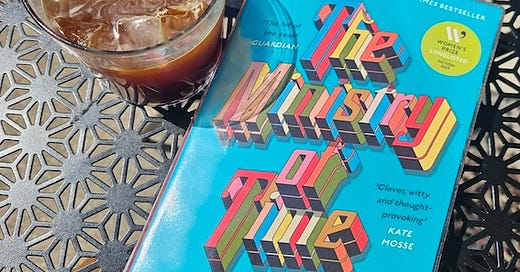



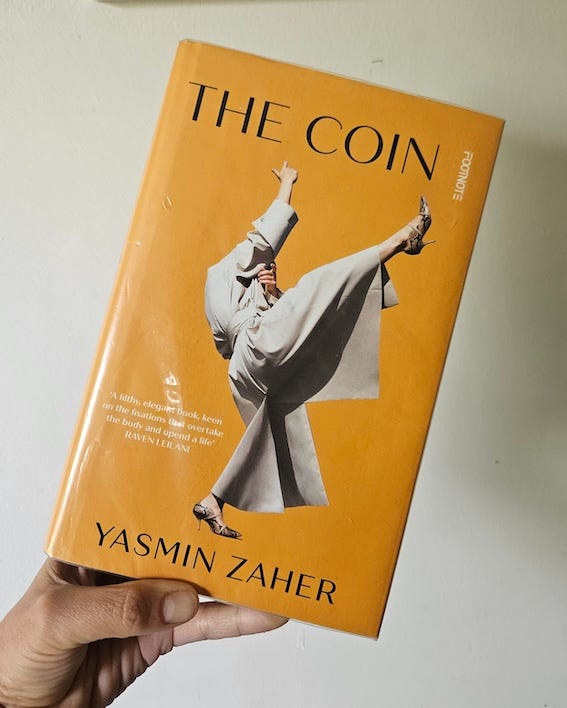
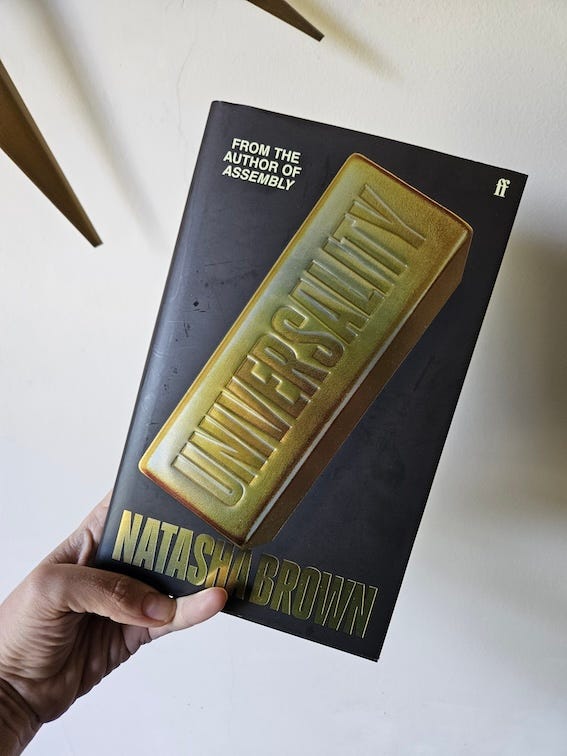
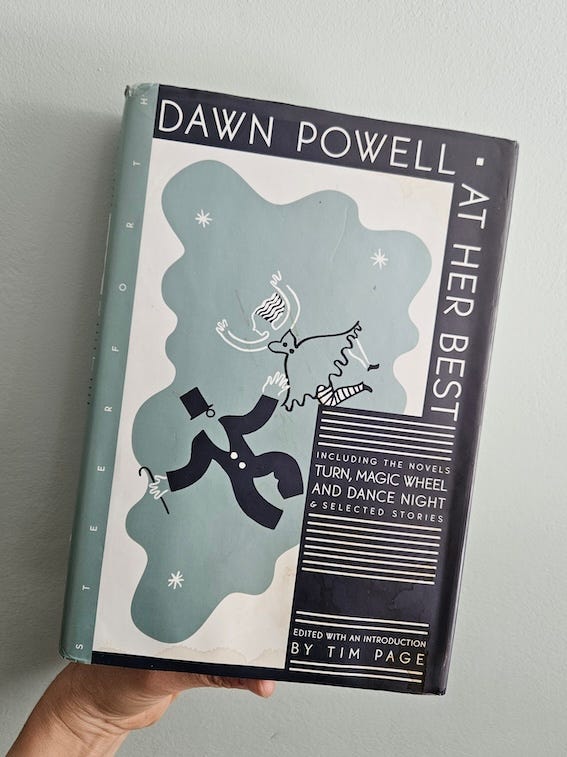
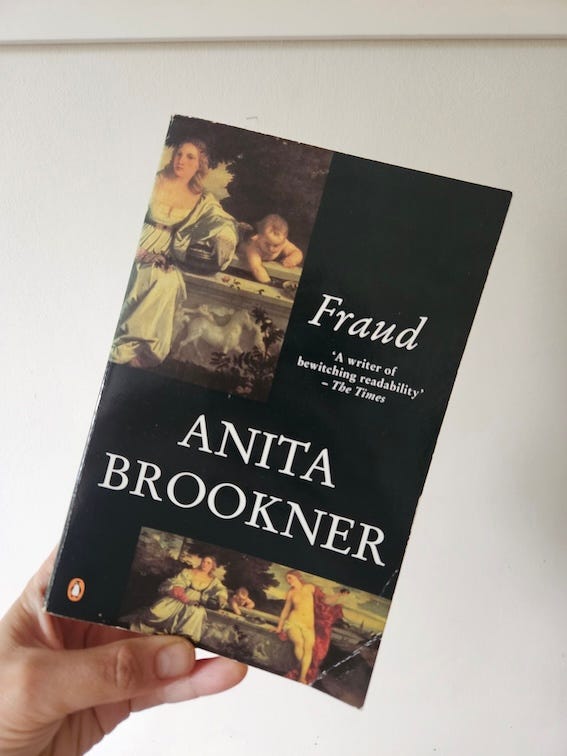
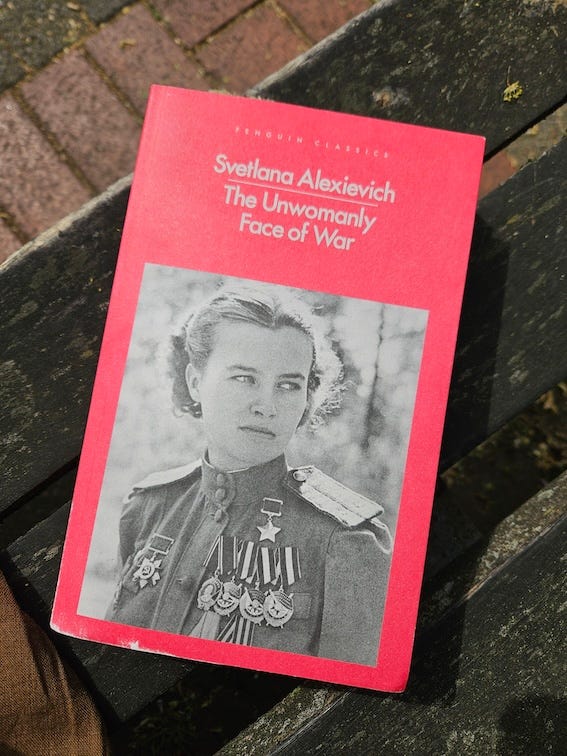
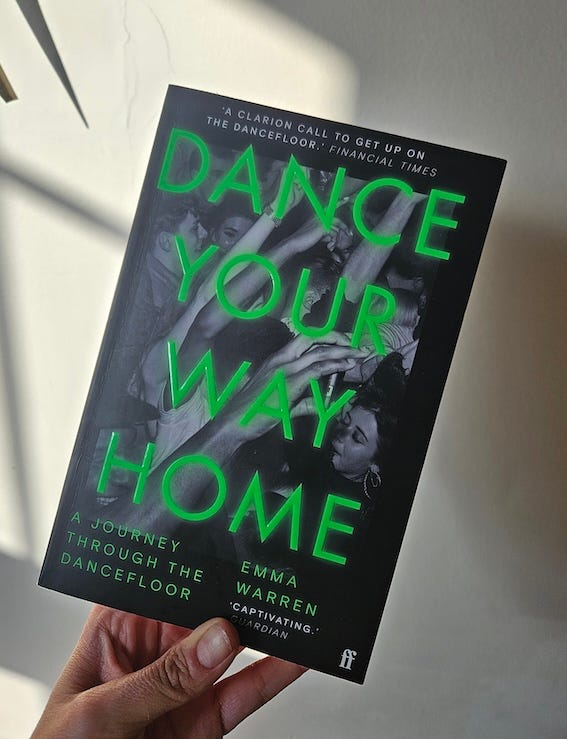
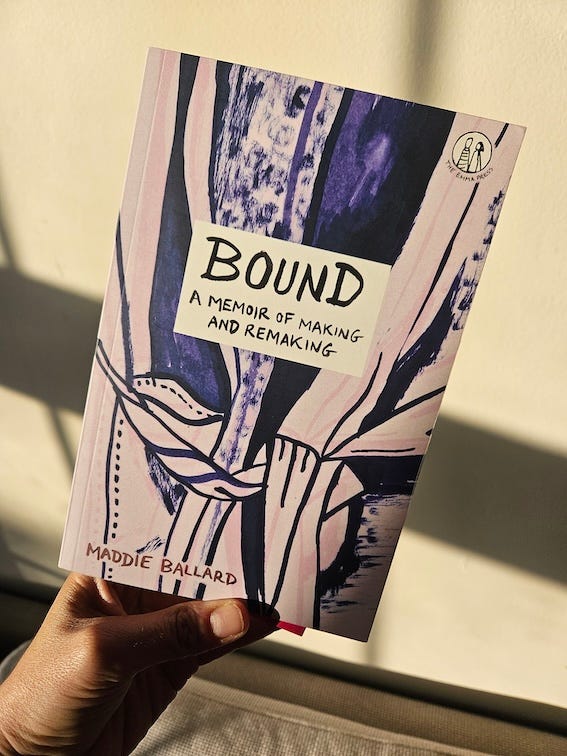
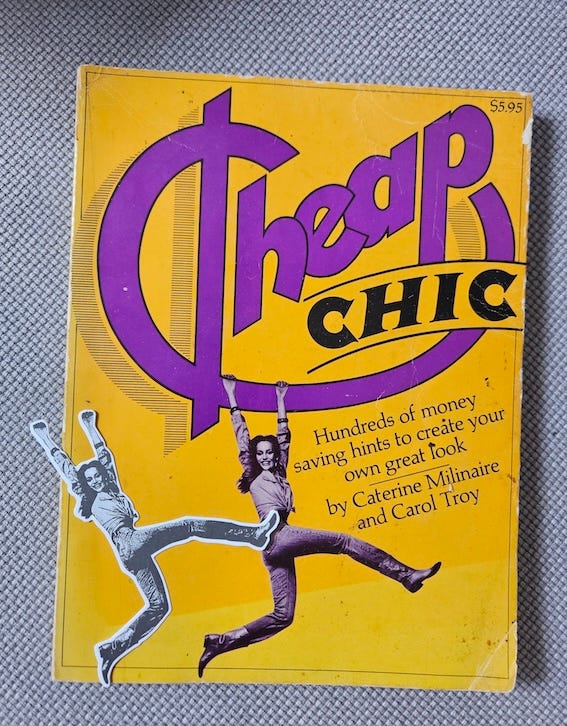
Just ordered Universality from the library - if you've read it twice, it must be good!